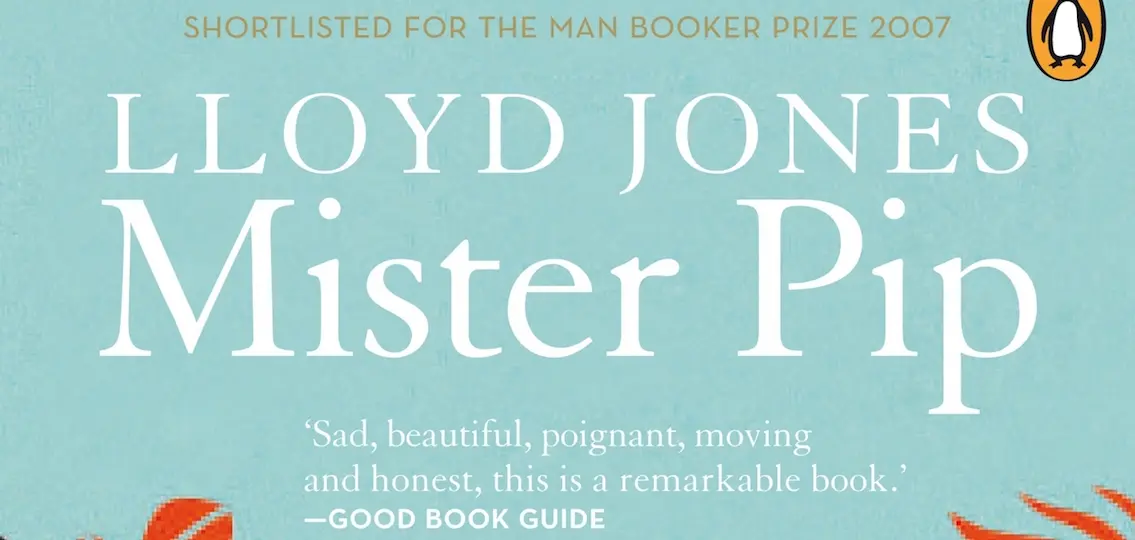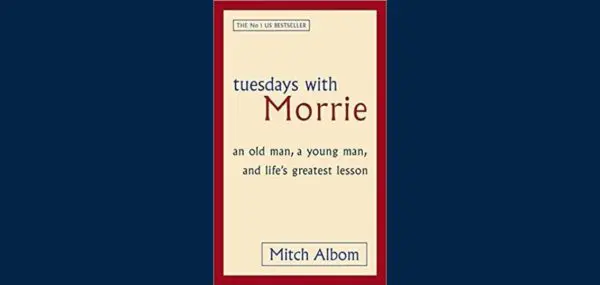Mister Pip is a complex tale of war, loyalty, and the power of words. Whether you’re familiar with Dickens or not, it’s a fantastic read from start to finish.
ADULT REVIEW | by Beth Armstrong
The worlds that novelists create often feel real to me. I place myself in the shoes of the characters, I spin their stories backwards and forwards, and I can sometimes lose my bearings in the real world as a result. So, it was with delight that I picked up Mister Pip, by New Zealand writer, Lloyd Jones, knowing that I would greet my old friends from Charles Dickens’ Great Expectations, in a new context.
Winner of the Commonwealth Writers’ Prize and a finalist for the Booker Prize in 2007, Mister Pip is set on the island of Bouganville, Papua New Guinea during the early 1990s, when a civil war cut off the island from the outside world. The only white man left on the island, Mr. Watts (called Pop Eye by the villagers), takes on the role of schoolteacher, reading Great Expectations to the village school children over the course of 60 days. As loss follows loss for the villagers, Mr. Watts reminds the children of what no one can take from them: their minds and their imaginations.
Mr. Watts presents Pip’s story as the story of an emigrant, and the act of reading itself becomes a sort of emigration, as the narrator, Matilda Laimo, and her classmates escape the stresses of war to enter into the nineteenthcentury London of Pip, Estella, Magwitch and Miss Havisham.
Thirteen-year old Matilda, an unflinching witness to change and tragedy, writes what she sees and experiences in language that is all the more powerful because of her simple and straightforward style. She tells her own story as she tells the story of Mr. Watts—the versions he offers and the version that Matilda later unfolds for herself. Through her eyes, we also see the lushness of her island home, her love for a mother too often angry and distant, and the exhaustion and illness behind the ruthlessness of the soldiers.
I found Mr. Pip both believable and fantastic, simple and complex—a skillfully woven tale of loyalty and betrayal, heroism and sacrifice, and above all, the power of stories and storytelling. While I don’t read Great Expectations aloud in class, I do teach it every year; I’m always finding new depths to the book through conversations with my students. You don’t have to have read Great Expectations to read and enjoy Mister Pip, but reading Mister Pip just might inspire you to pick up Mr. Dickens.
TEEN REVIEW | by Hannah Margolis
While originally overwhelmed by Charles Dickens’ literary complexity, I became accustomed to his writing in Great Expectations the more I read. It was not long before it felt like Pip and I were growing up together. Thus, it is not surprising that a book titled, Mister Pip, caught my eye while skimming the shelves of our local library. I felt a pinch of happiness as I delicately opened its plastic-wrapped binding and heard that one-ofa-kind crackling noise that signals the fire of the story has hit the oxygenated air with a burst.
Mister Pip, by Lloyd Jones, is the story of a young girl, named Matilda, who lives on the war-torn island of Bouganville, Papua New Guinea. When the children’s teachers begin to flee from the violence of the occupying soldiers, the only white man living on the island, Pop Eye, decides to take their place. To the children’s surprise, Pop Eye reads aloud Great Expectations at the end of each day. As time goes on, Matilda builds a strong connection with Pop Eye, Pip and Dickens’ befuddling use of language.
Mister Pip is one of those rare books with a fulfilling, yet thought-provoking ending. While it is not unusual for me to find camaraderie in the fictional characters I meet, the relationships I formed with the characters in Jones’ book submerged me in a different perspective, something that only happens when I’m deeply engaged in a story.
When I compare my life’s lessons against Matilda’s experiences, I am in awe for her discovery, enlightenment and strength of mind. Upon finishing Jones’ novel at 2 a.m., I set aside sleep and took a moment to let its meaning sink in. I set my journal on my lap and began to brainstorm something small that I could add to my life to give me a similar strength and awareness as Matilda’s. While not everyone will feel as moved as I did upon finishing Mister Pip, it was an undoubtedly great read, especially if you share the gusto for Dickens that Matilda, Pop Eye, and I do.




